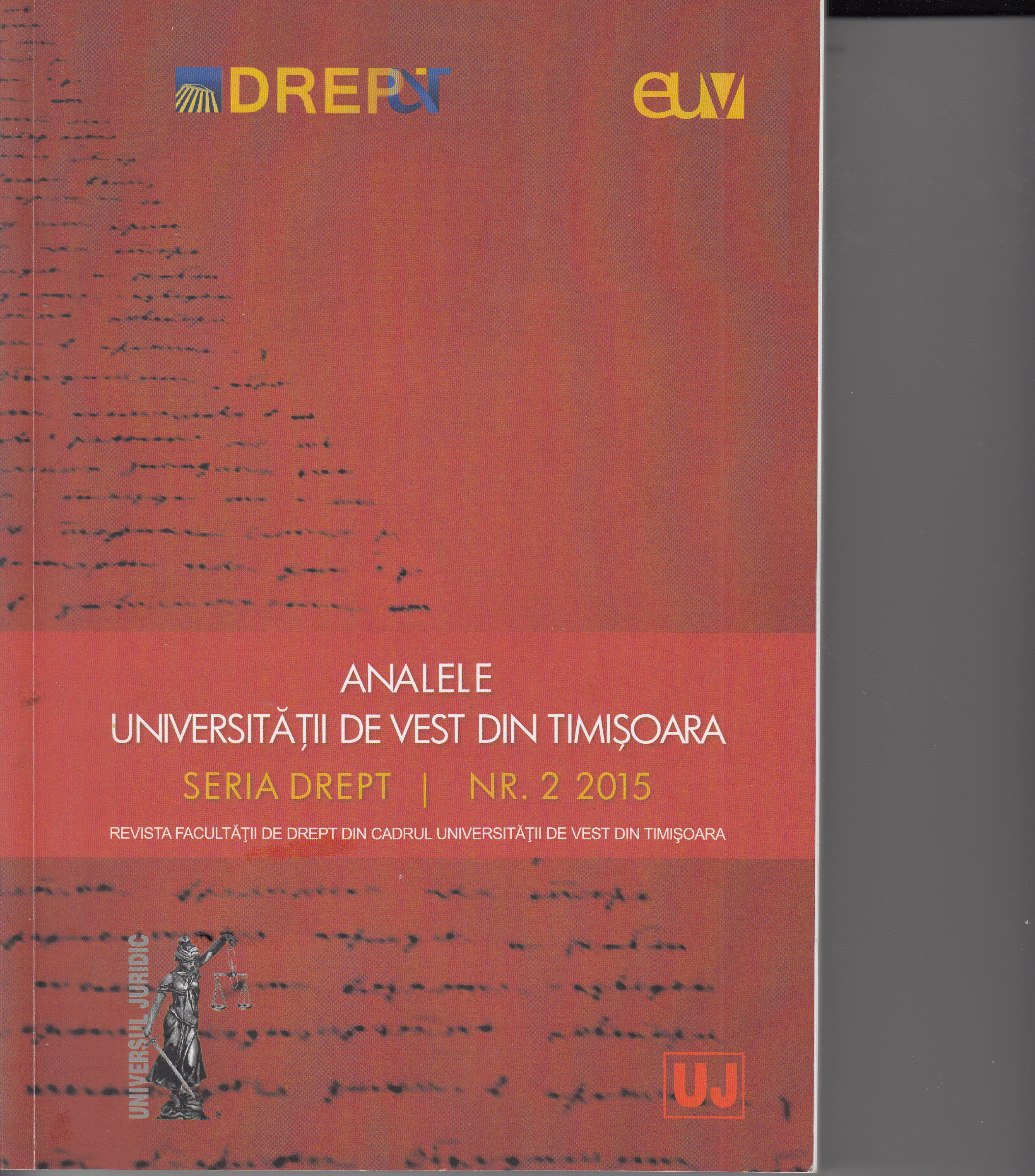Dreptul european al consumului din perspectiva
Directivei 93/13 privind clauzele abuzive şi a jurisprudenţei
Curţii de Justiţie a Uniunii Europene
European Consumer Law From the Perspective
Directive 93/13 on unfair terms and case-law
Of the Court of Justice of the European Union
Author(s): Ioana Camelia BuciuSubject(s): Law, Constitution, Jurisprudence
Published by: Universul Juridic
Keywords: European consumer law; Council Directive 93/13/EEC on unfair contractual terms; abusive clauses; investigation independence; ECJ case law; the obligation to start an ex officio investigation
Summary/Abstract: European consumer law governs the relationship between consumer and the Internal Market, where the consumer is the final beneficiary of production and distribution. The superior economic power of undertakings from certain sectors has changed the form of the consumer agreement, from a negotiated manifestation of free will into a pre established manifestation of will and adhesion. In this context, in order to restore contractual fairness, Directive 93/13/EEC on unfair terms in consumer contracts was adopted. Directive 93/13/EEC provides for a harmonized minimum in consumer law, while the Member States retain their national law. The implementing of this Directive has been uneven due to the special characteristics of national legislation regarding contract law, thus continuing the market fragmentation at national level. In this context, ECJ interprets the Directive 93/13/EEC and broadens conferred consumer protection to the detriment of the Directive interpretation given by national courts transposing it into the Member States' national law. Thus, the interpretation provided by the ECJ affects the scope and limits of the court obligation to start an ex officio investigation. Although, by means of the ECJ case law, the EU indirectly extends its legislative powers in the field of consumer law, it should be noted that neither the Directive 93/13/EEC, nor the Law No. 193/2000 transposing the Directive do not provide for any express obligation on the court to start an ex officio investigation with a view to deciding on the abusive character of contractual terms. The consumer passivity when failing to invoke the annulment by law or by exception, as well as the national judge passivity when failing to start an ex officio investigation, eludes the purpose of the European Directive and of the national transposing law. The national judge, as first point of contact in the field of European law and according to ECJ case law, has the duty to start an ex officio investigation and to acknowledge the abusive character of contractual terms, thus making sure that the provisions in the Treaty on the Functioning of the European Union are complied with, in order to protect consumers' interests
Journal: Analele Universității de Vest din Timișoara - Seria Drept
- Issue Year: 2015
- Issue No: 2
- Page Range: 221-248
- Page Count: 21
- Language: Romanian

